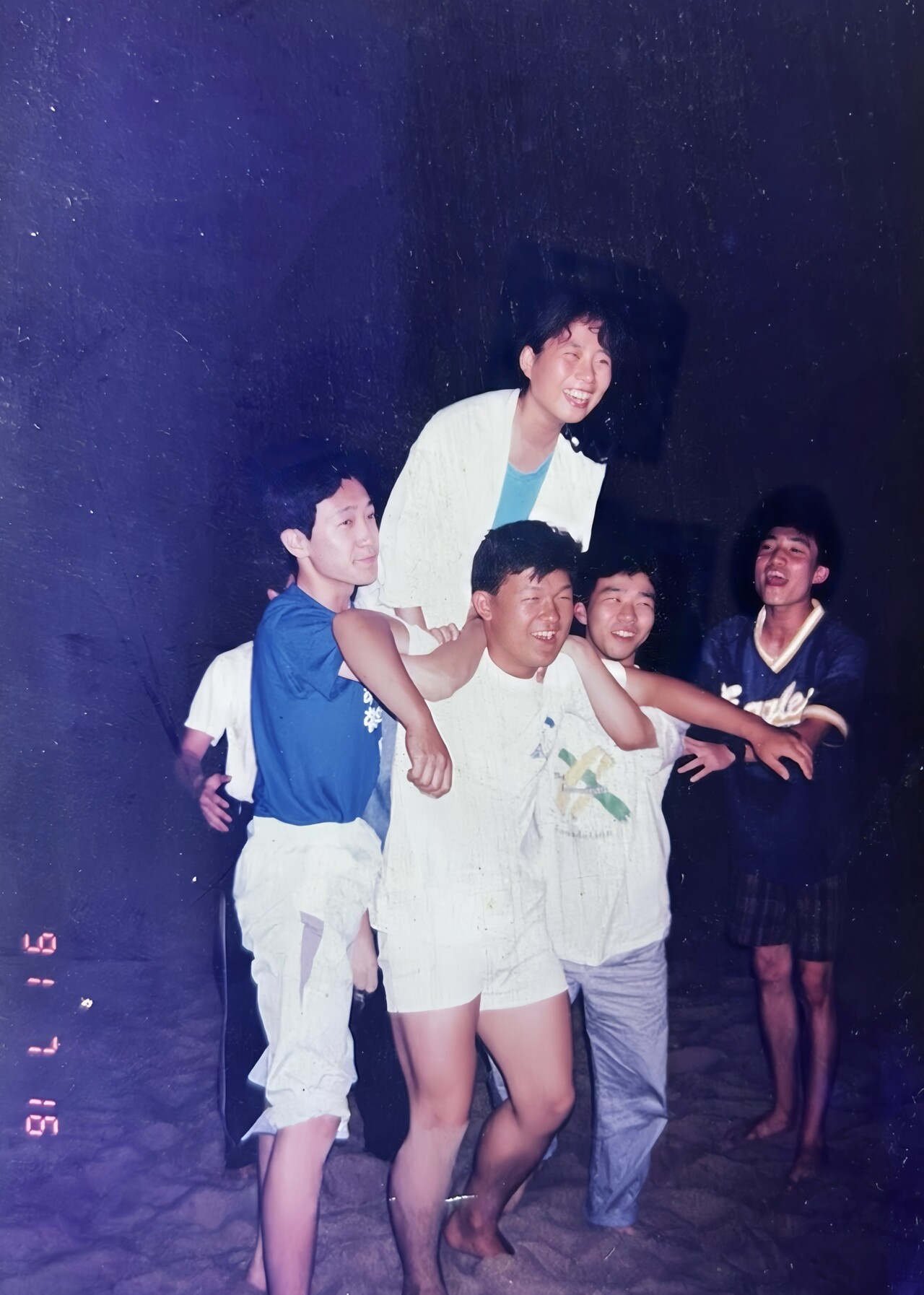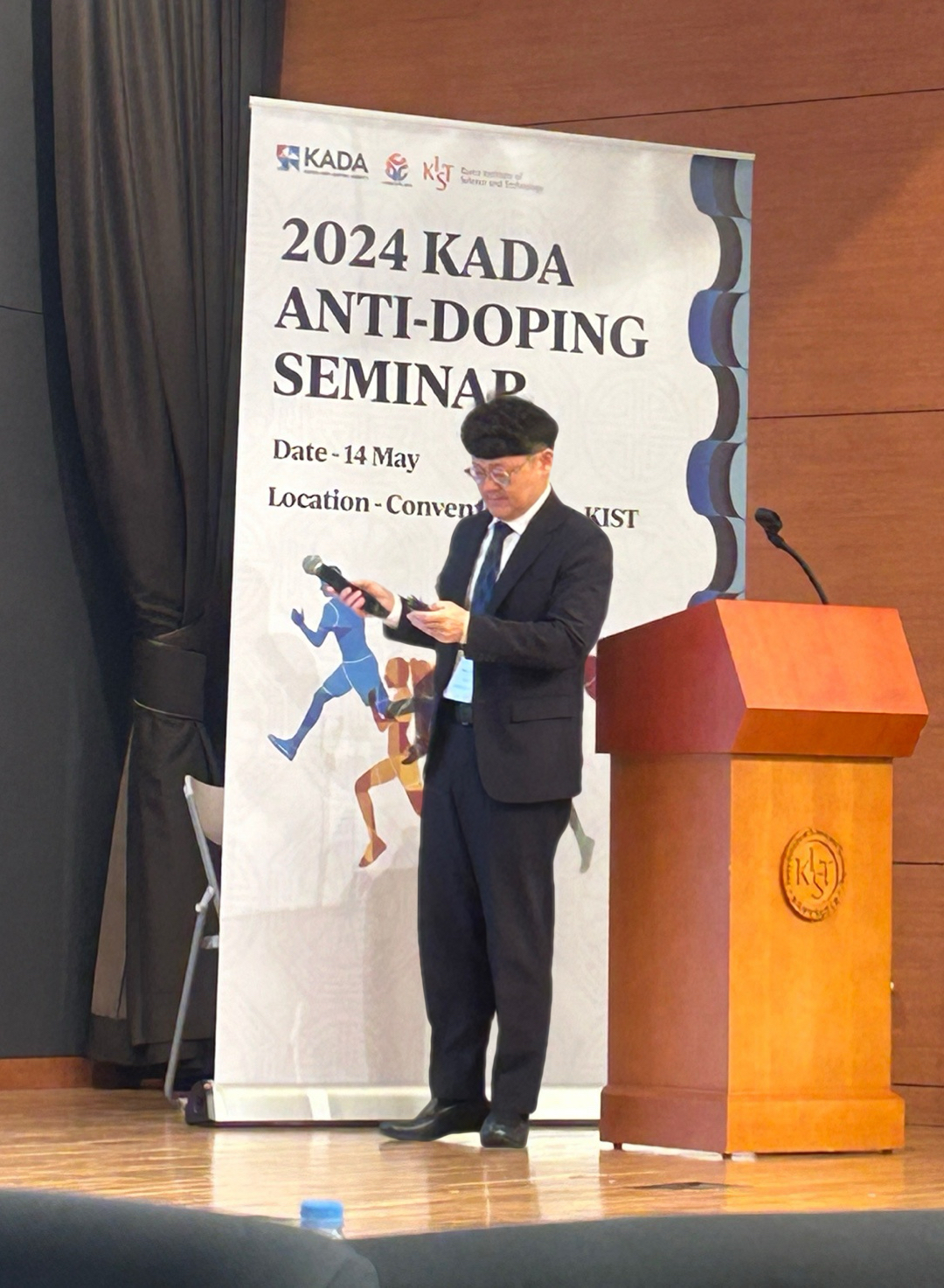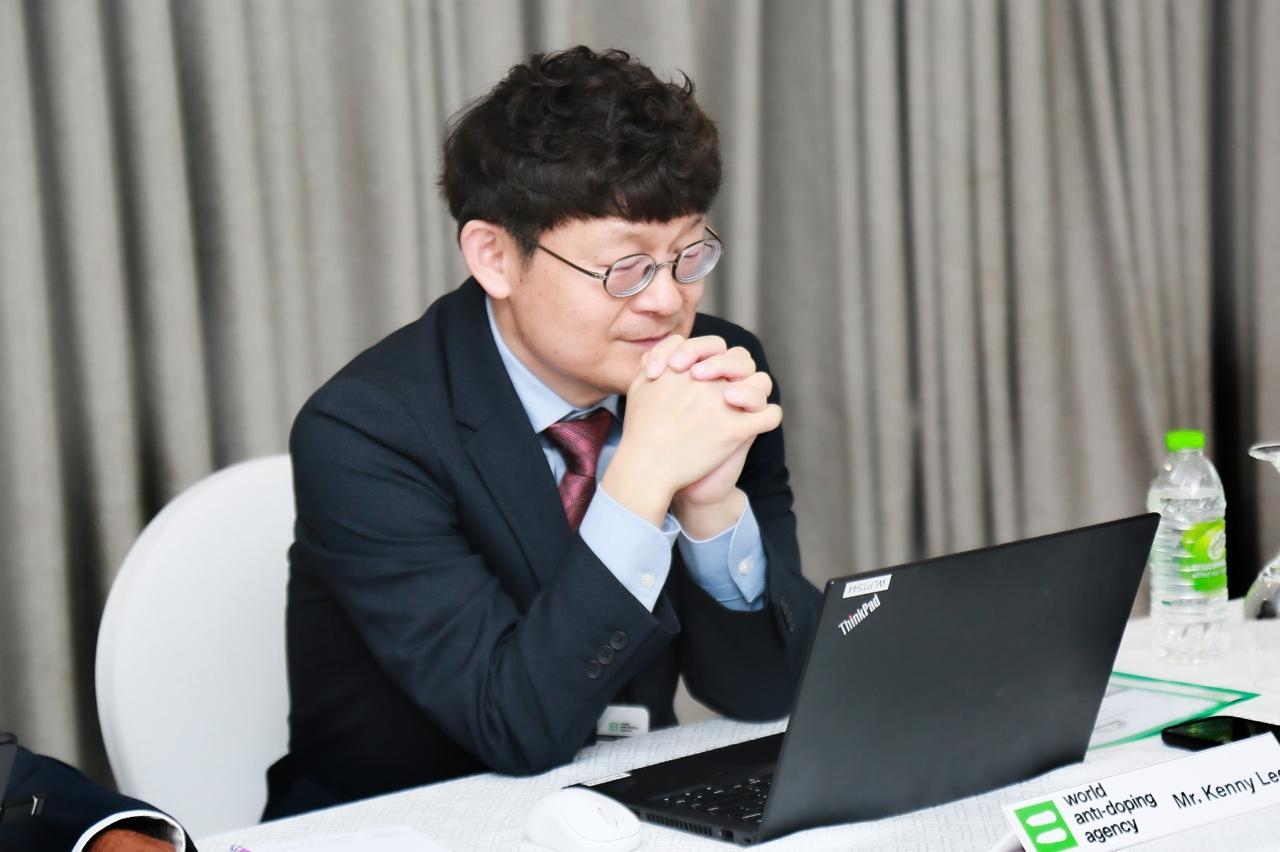The road to the global stage is rarely straight. Crossing boundaries of discipline, career, and country, Lee Kyu-hwan has forged a path of constant transformation, reshaping his journey at every turn. Once a member of the Sungkyun Times (SKT)’s 25th reporter team, he now works at an international nonprofit organization based in Canada, safeguarding fairness in sports worldwide. In this interview, the SKT follows his journey from Sungkyunkwan University (SKKU) lecture halls to the global arena, uncovering how he has navigated challenges and changes.
Where Passions First Took Flight
Q1. Please briefly introduce yourself.
Hello, everyone. I am Lee Kyu-hwan. I entered SKKU in 1991 to pursue a bachelor’s degree in French Language and Literature. I also served as an SKT reporter for two years starting in 1991. Afterward, I worked at Hyundai Marine & Fire Insurance for about three years, where I developed a keen interest in the field of sports marketing. This led me to pursue a master’s degree in sports management in Australia in 1999, and later, a Ph.D. in sports science at SKKU. After completing my doctorate, I spent more than a decade at the Korea Anti-Doping Agency (KADA), contributing to the establishment of Korea’s anti-doping framework. Since 2018, I have been working at the World Anti-Doping Agency (WADA) Asia/Oceania Regional Office in Tokyo, Japan, where I oversee compliance with international anti-doping regulations across the region.
Q2. During your time at the SKT, what was the most memorable moment?

The most vivid memory is the daily 7:30 a.m. training sessions that I attended as a freshman. For a whole year, my seniors trained me in English article writing, which meant waking up around 5:30 a.m. every day. Another unforgettable moment is covering the 14th presidential election in December 1992. I wrote a main feature analyzing the key pledges of candidates like Kim Young-sam and Kim Dae-jung and reflected on how the new civilian government might shape Korea’s future. Even today, I clearly recall the excitement and responsibility I felt as a student journalist covering such a historic event.
Q3. What does the SKT mean to you?
The SKT was where I built the foundation of my social life. At the time, the organization’s three mottos were unity, punctuality, and responsibility. After two years, these principles became deeply ingrained in me. They have continued to guide me throughout my career and personal life. On a more personal note, my daughter has also joined the SKT this year, making it even more meaningful for me. To me, the SKT is not just a memory of my college days — it is a deeply rooted cornerstone of my life.
Q4. Why did you choose to study abroad in Australia after undergraduate graduation, and what was the most valuable lesson during that time?
While working at Hyundai, I grew increasingly fascinated by sports marketing, especially since the chairman, Chung Mong-yoon, was interested in sports marketing as a corporate strategy. The field’s growing prominence — highlighted by Korean baseball player Park Chan-ho’s rise in Major League Baseball — sparked my desire to study it more deeply. Since the field was still relatively new in Korea, I decided to study in Australia. Leaving behind a stable career was not easy, but my parents’ wholehearted support gave me the courage to take the leap. While I studied there, I broadened my academic horizons and, above all, learned the importance of overcoming fear when facing new challenges.
Q5. What led you to pursue further study in sports psychology?
While studying sports management in Australia, I took a sports psychology course that deeply intrigued me. Studying how psychological factors influence athletic performance drew me into the field. My master’s thesis also examined the psychological aspects of golf performance, which further confirmed my interest. After returning to Korea, I enrolled in SKKU’s College of Sports Science and chose sports psychology as my focus, eventually earning my Ph.D. The field appealed to me not only for its role in improving athletic performance but also for its broader insights into human behavior and resilience.
Crossing Fields, Crossing Borders
Q6. How did you first join WADA, and what are your main responsibilities now?
I began my career in anti-doping at KADA in 2006, where I worked for over a decade. WADA was always an organization I aspired to join, so when a position for the Asia/Oceania Regional Office opened in 2018, I applied without hesitation. I started working at the Tokyo office in September that year. My primary responsibility is monitoring whether countries in the region properly implement the World Anti-Doping Code and International Standards. I also oversee capacity-building and education programs to strengthen anti-doping systems across Asia and Oceania, thereby helping to ensure fairness on the global sports stage.
Q7. How did your experience working for a Korean company help you in your international career?
During my three years at Hyundai, the company placed strong emphasis on customer service and courtesy. I received extensive training in treating others with respect, which has stayed with me ever since. At WADA, I often engage with diverse stakeholders such as governments and national anti-doping agencies. In these interactions, expertise alone is not enough — kindness and respect matter just as much. The service-oriented mindset I developed in Korea has helped me foster smoother collaboration in multicultural environments.

Q8. Have you experienced any cultural differences while working at WADA?
One striking difference I noticed is the approach to vacation. When I take time off, I usually include my phone number in my out-of-office reply in case of emergencies. In contrast, many colleagues from North America or Europe take a very different approach. They make it clear they are disconnecting, emphasize rest and recharge, and direct urgent matters only to a general department email. Their philosophy is to fully unplug from work, while mine has been to stay available just in case. Neither way is necessarily better, but such small differences are what make international work interesting.
Q9. When working in a multinational environment, what do you think is the most important factor?
The most critical factor is maintaining respect and an open mind toward colleagues from different cultural backgrounds. Disagreements naturally arise in diverse situations, but with mutual respect, those differences can turn into productive discussions. Equally important is strengthening one’s expertise. Without a full understanding of the rules and standards, I cannot earn the trust of other organizations or countries. Continuous learning and selfimprovement are therefore essential. Ultimately, successful collaboration requires a balance of professionalism and attitude.
Lessons for the Road Ahead
Q10. What motivates you to keep challenging yourself across different fields and borders?
What drives me is the constant pursuit of new challenges. A quote I hold close to my heart comes from the philosopher Saint Augustine of Hippo: “The world is a book, and those who do not travel read only one page.” I interpret this as those who do not challenge themselves experience only a small part of what life has to offer. Whenever I encounter a new field or opportunity, I try not to hesitate but to step forward with courage. That mindset is what keeps me moving.
Q11. What goals or challenges lie ahead for you?
My immediate goal is to ensure that the revised World Anti-Doping Code, set to take effect in 2027, is smoothly implemented across Asia and Oceania. The following year will be a critical period of adaptation for all countries in the region. My role will be to fully understand the revisions and provide guidance and education tailored to each country’s needs. Strengthening my expertise will be crucial to helping others adapt effectively. Supporting nations in this transition is both my responsibility and my next challenge.
Q12. Do you have any advice for Kingos as a senior alumnus of SKKU and the SKT?
My advice is simple: do not be afraid to cross boundaries and take on new challenges. SKKU offers a wide range of academic and research opportunities, with campuses in both Seoul City and Suwon City. This means countless opportunities are waiting to be discovered. When you find something that sparks your interest, do not hesitate — pursue it boldly, even at the risk of failure. The experiences gained from such challenges will become invaluable assets that enrich your life in the future.

